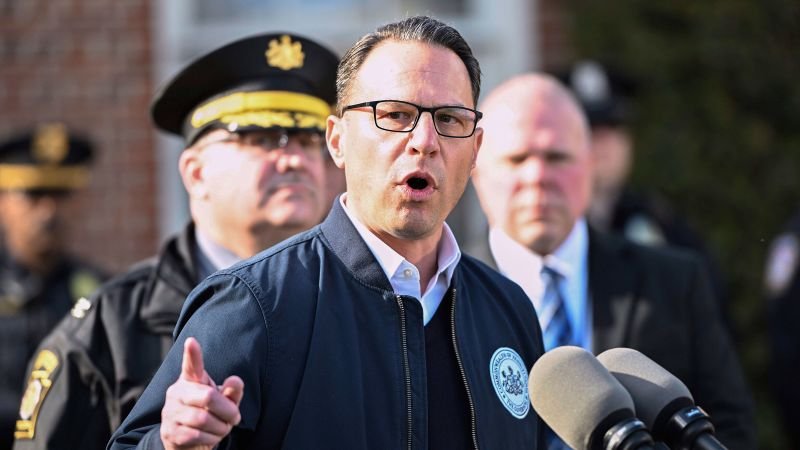Political Violence and Leadership: A Call for Unity from Pennsylvania’s Governor
In a poignant address following the assassination of Charlie Kirk, Pennsylvania Governor Josh Shapiro did not hold back in his condemnation of former President Donald Trump. Shapiro asserted that Trump had failed both a “leadership test” and a “morality test,” underscoring the growing concerns regarding political violence in the United States.
Reflecting on Recent Tragedies
Shapiro’s remarks came during a press conference in Pittsburgh, where he emphasized the moral obligation of leaders to use their platforms responsibly. “It should not be hard to stand up to some people who are celebrating the killing of Charlie Kirk and say, ‘That’s wrong,’” he stated, reinforcing the notion that accountability should transcend political divides. He further criticized those who incite calls for vengeance, asserting that such rhetoric is damaging regardless of its source.
The governor, a prominent figure in Democratic politics and considered a potential candidate for higher office in the future, particularly criticized Trump’s tendency to assign blame for violence exclusively to the left. This selective rhetoric, he argued, exacerbates societal divides and endangers collective healing.
The Impact of Rhetoric on Society
Shapiro articulated the broader implications of political violence and emotional fallout, linking it to his own experiences, including a recent arson attack on the governor’s mansion after a Passover celebration. He described the feelings of terror that permeated that evening and the overwhelming support received from the community in the aftermath.
During his speech, he contended, “Doing that [assigning blame] only further divides us and makes it harder to heal.” Shapiro expressed that some individuals may misinterpret selective condemnation as a green light to perpetuate further violence, creating a dangerous cycle.
Addressing the Crisis of Political Violence
The discussions surrounding political violence have heightened in recent months, particularly in light of various violent incidents linked to political motivations. From Kirk’s assassination to attempts on the life of public figures such as Trump, Shapiro raised alarm over the critical need for leaders to coexist and promote peace. He asserted, "Not only does it seek to injure, maim, or kill… it seeks to intimidate and terrorize and silence."
Shapiro attributed the solution to political violence not solely to governmental action, but also to creating environments that foster understanding and compassion among communities. “What starts with cowardly keystrokes often ends with a trigger being pulled in our communities,” he remarked, highlighting the connection between online hate and real-world violence.
Community Healing and Common Ground
The governor emphasized the importance of finding common ground in a polarized political landscape. He invoked the message of Fred Rogers, the beloved children’s television host from western Pennsylvania, encouraging people to "look for the helpers" in times of crisis.
In his closing remarks, Governor Shapiro expressed unwavering faith in communal strength against hate. “I believe that we are stronger than hate,” he stated passionately, emphasizing that combating violence and division isn’t a task relegated to others, but rather a collective responsibility that falls upon all citizens.
Conclusion: A Call to Action
Governor Shapiro’s statements resonate as a crucial reminder of the collective responsibility to stand against hate-fueled violence, irrespective of political allegiance. His message is clear: in the face of adversity, leaders must not only acknowledge but actively condemn violence and animosity. Unity, understanding, and compassion must reign supreme as America grapples with the pressing question of political violence in the contemporary landscape.
In promoting a more peaceful society, it is essential that citizens commit to dialogue and healing, breaking the chains of division that hinder communal growth.
For more insights on political violence and community unity initiatives, you can explore related resources on CNN and other credible news outlets.


